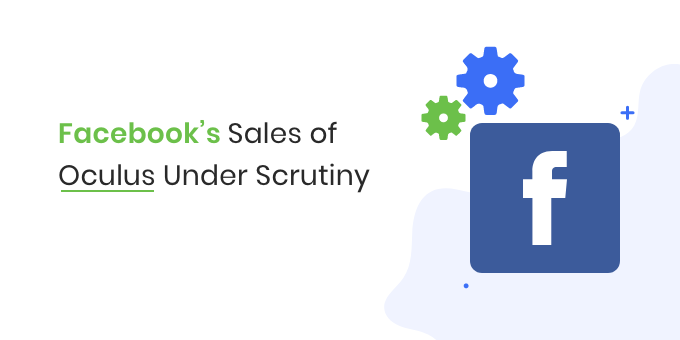The sale of Facebook’s subsidiary Oculus has been temporarily paused under privacy constraints in Germany. The German regulator mentioned in an official report that all Oculus users will need to create Facebook accounts to use the device by 2023.
According to an official statement by Facebook: “We have temporarily paused selling Oculus devices to consumers in Germany”.
They added: “We will continue supporting users who already own an Oculus device and we’re looking forward to resuming sales in Germany soon.”
Facebook has denied the importance or the need for such an explicit consent and specific login activity by the users.
In a statement, the Hamburg Commissioner for Data Protection and Freedom of Information (HCDPFI) stated, in part:
“The obligation to create a Facebook account [to be able to use an Oculus headset] is legally extremely questionable, at least for those who have already bought a headset. Whether this also applies to new customers is definitely open to discussion.” The group goes on to cite the GDPR’s so-called “coupling ban”, which prohibits tying one side of a contract (say, the EULA needed to use an Oculus headset) to the sharing of specific personal data (say, the data included in a user’s personal Facebook account).
This could be a major precedent for all countries where the GDPR applies. It can bring about a wave of changes for the company worldwide if further investigation is ruled in favour of the law rather than Oculus.
According to officials, its requirement that “the use of the headset should be linked to the establishment of a Facebook account” would seem to violate this coupling ban. The HCDPFI said: “For those users who already have a headset and do not log in with a Facebook account after 2023, there is also no immediately suitable alternative to continuing to use the headset. The compulsion to use Facebook is therefore exerted on both old and new customers.”
Both the HCDPFI and Germany’s Federal Cartel Office have looked into various companies on such matters. The Cartel Office has previously gone after the companies such as WhatsApp and Instagram that engage in an activity such as social listening without the user’s active consent. This is not a new story for them, simply another one with the same plotline.
Perhaps, let’s wait and watch to see how this story develops and its impact on Facebook and its users across the globe.

